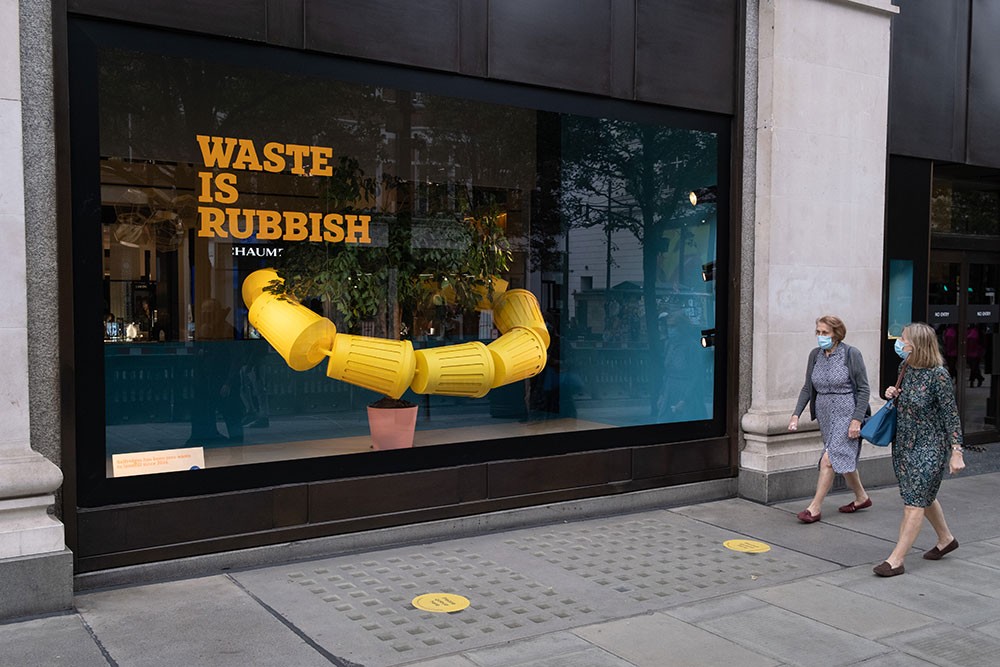
With global warming on the rise, we need not only to reduce emissions to mitigate as much climate change as we can; we also need to adapt to make the economy more resilient against impacts before it’s too late.
For the investment community, the imperative to build a green economy, coupled with public pressure, creates opportunities. ACCA’s chief executive Helen Brand said at the launch of the world’s first Green Finance Education Charter: ‘It’s through professional education that accountants and their membership bodies like ACCA can support the transition to a low-carbon world.’
The Global Commission on Adaptation said adaptation investments consistently deliver high returns, with benefit-cost ratios ranging from 2:1 to 10:1. Infrastructure funding needs to deliver better environmental outcomes.
The Environment Agency has set itself the goal of becoming a net-zero organisation by 2030 but we can only do this by employing the right skills
In full
The above is an extract from a speech by Emma Howard Boyd, chair of the Environment Agency and UK commissioner to the Global Commission on Adaptation, given at ACCA’s Professional accountants building a greener future event on 23 July 2020.
One immediate way to do this would be to establish a well-capitalised national investment bank that pursues net zero, increased adaptation and resilience, and nature recovery, with real economy impact targets that are focused by sector.
But we don’t have time to wait. The National Infrastructure and Construction Procurement Pipeline 2020/21 is an opportunity to start now, with up to £37bn of planned procurement over the next years. According to the Institution of Civil Engineers, 45% of the previous six-year programme of National Infrastructure and Construction will have been financed through the private sector.
Private solutions
The private sector has customers and institutional investors who want to see their savings invested in projects that further environmental and social aims. Filmmaker and founder of Comic Relief Richard Curtis recently launched the Make My Money Matter campaign to alert the public to the collective power of their pension investments.
No one has time to waste getting ahead of this demand.
Earlier this year, the Environment Agency and Defra launched a programme financing nature-based solutions with the Esmée Fairbairn Foundation and Triodos Bank. One example is the building of leaky dams (made of natural, woody materials), the creation of bog and the rewetting of peat on 70 hectares of the River Wyre catchment by the Rivers Trust, to reduce flooding for a number of properties in Lancashire, create new habitats for wildlife and help to mitigate climate change by storing greenhouse gases.
The seed investment will allow partners including United Utilities, Triodos Bank UK, Co-op Insurance and Flood Re to allow upfront investment to be reimbursed by the beneficiaries of a healthier environment.
We will then work with others in the finance sector, including the Green Finance Institute, to catalyse the scaling up of further similar projects, both in the UK and around the world.
Human capital
The Environment Agency has set itself the goal of becoming a net-zero organisation by 2030 but we can only do this by employing the right skills. A lack of STEM (science, technology, engineering and maths) skills is estimated to cost industry £1.5bn a year in recruitment, inflated salaries and additional training costs.
Last month, Wildlife and Countryside Link listed 330 projects that are ‘ready to go’ – from micro-forests to huge coastal realignment schemes – that, in the short term, could create around 5,000 full-time equivalent jobs in the environment sector, 5,000 jobs in delivery.
We believe we could increase the scale of these by involving other local delivery partners and by using rivers and the rail network as existing nature corridors.
When the prime minister talks about building back ‘better, greener and faster’, this is not a one-time project to recover from coronavirus
The involvement of city mayors could create more active travel in ’15-minute cities’ – where work, home, shops, entertainment, education and healthcare are all within 15 minutes on foot or by bike. Access to green and blue space is essential for people’s health and wellbeing, sense of place and the tourism industry.
When the prime minister talks about building back ‘better, greener and faster’, this is not a one-time project to recover from coronavirus. Kristalina Georgieva, managing director of the International Monetary Fund, has talked about ‘building a recovery that is focused on a great transformation’.
The accountancy profession is key to this. As John Glen MP, economic secretary to the Treasury, said at the launch of the Green Finance Education Charter: ‘The finance sector has a vitally important role to play in combating climate change, and by ensuring those working in the industry get the right training, we can ensure green finance and sustainability is central to our work now and in the future.’

